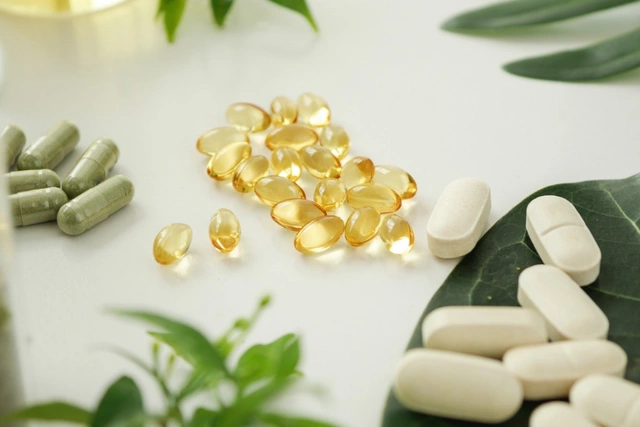
Stomach Ache Remedy Finder
Find Your Perfect Remedy
Select your primary symptom to get personalized recommendations from the most effective home remedies.
Got a gnawing ache in your gut and the pharmacy line looks endless? You don’t need to pop a pill right away-your kitchen and a few simple habits can bring quick stomach ache relief without the side‑effects.
Understanding Stomach Ache
Stomach ache is a pain or discomfort located in the upper abdomen, often caused by digestive upset, gas, or mild inflammation. It can feel like a dull ache, sharp pangs, or a cramp that comes and goes. While most episodes are harmless, the sensation can be distracting and sometimes signals that something in your diet or routine needs tweaking.
Common Triggers You Might Overlook
- Eating too quickly or overeating
- Spicy, fatty, or acidic foods
- Carbonated drinks that trap gas
- Stress and anxiety affecting gut motility
- Changes in routine, such as jet lag or shift work
Instant Comfort Tips Before Trying a Remedy
- Sip room‑temperature water for 5‑10 minutes to flush excess acid.
- Sit upright or take a gentle walk; lying flat can worsen reflux.
- Apply a warm compress to the abdomen for 15 minutes to ease muscle tension.
- Avoid tight clothing that puts pressure on the stomach.

7 Tried‑and‑True Home Remedies
Below are the most reliable natural options. Each one is backed by decades of folk use and modern research confirming its soothing properties.
1. Fresh Ginger
Ginger is a rhizome rich in gingerol, a compound that relaxes the gastrointestinal tract and reduces inflammation. To use, grate a teaspoon of fresh ginger into hot water, steep for 5 minutes, and sip slowly. If you can’t find fresh ginger, a half‑teaspoon of dried powder works just as well.
2. Peppermint Tea
Peppermint contains menthol, which relaxes smooth muscle and eases bloating. Brew one teaspoon of dried peppermint leaves in hot water for 7‑10 minutes. Drink the tea after meals to prevent gas build‑up.
3. Apple Cider Vinegar
Apple cider vinegar (ACV) is mildly acidic, helping balance stomach pH and improve digestion. Mix one tablespoon of raw, unfiltered ACV with a cup of warm water and a pinch of honey. Sip slowly before a meal to prime digestion.
4. Warm Compress
Warm compress (or heating pad) raises blood flow to the abdominal muscles, relaxing spasms and reducing pain. Apply a warm (not scorching) cloth for 15‑20 minutes, repeating if needed.
5. Chamomile Tea
Chamomile is known for its anti‑inflammatory and antispasmodic effects, soothing irritated lining of the stomach. Steep a chamomile tea bag in hot water for 5 minutes, add a drizzle of honey if desired, and drink before bedtime.
6. Fennel Seeds
Fennel seeds contain anethole, a natural carminative that helps expel trapped gas and relax muscles. Chew a teaspoon of raw fennel seeds after meals or brew them into a tea (steep 1 Tbsp seeds in hot water for 10 minutes).
7. Probiotic‑Rich Yogurt
Probiotics in yogurt introduce beneficial bacteria that restore gut flora balance, easing chronic discomfort. Choose plain, live‑culture yogurt and consume half a cup daily, optionally sweetened with a drizzle of maple syrup.
Quick Comparison of Remedies
| Remedy | How It Works | Prep Time | Best For |
|---|---|---|---|
| Ginger | Anti‑inflammatory, stimulates digestion | 5 min | Sharp pangs, nausea |
| Peppermint tea | Menthol relaxes smooth muscle | 7 min | Gas, bloating |
| Apple cider vinegar | Acid balance, boosts enzymes | 2 min | Acid reflux, indigestion |
| Warm compress | Increases blood flow, eases spasm | 1 min | Muscle cramps, lingering ache |
| Chamomile tea | Anti‑inflammatory, calms nerves | 5 min | Stress‑related discomfort |
| Fennel seeds | Carminative, releases trapped gas | 2 min (chew) / 10 min (tea) | Gas, after‑meal bloating |
| Probiotic yogurt | Restores gut flora balance | 0 min (just eat) | Chronic irritation, IBS‑like symptoms |

Red Flags: When Home Care Isn’t Enough
Most stomach aches fade with simple remedies, but watch for these warning signs that merit a medical visit:
- Pain lasting more than 48 hours or worsening steadily
- Severe, stabbing pain that doesn’t improve with heat or fluids
- Fever above 101°F (38.5°C) accompanying the ache
- Persistent vomiting, especially if you can’t keep liquids down
- Blood in vomit or stool, or black‑tarry stools
- Unexplained weight loss or loss of appetite over weeks
If any of these appear, skip the tea and call your doctor. Early diagnosis prevents complications.
Key Takeaways
- Identify the trigger - food, stress, or habit - before picking a remedy.
- Ginger, peppermint, and apple cider vinegar are the top three fast‑acting options.
- Warm compresses and chamomile help when pain is muscular or stress‑related.
- Probiotic yogurt supports long‑term gut health and can reduce recurrent aches.
- Seek professional care if pain is severe, persistent, or linked with fever, vomiting, or blood.
Frequently Asked Questions
Can I combine these remedies?
Yes, many people pair a soothing tea (peppermint or chamomile) with a warm compress. Just watch for overlapping ingredients - for example, don’t add extra ginger if you’ve already taken a ginger shot.
How often can I use apple cider vinegar?
One to two times daily is safe for most adults. Overuse can erode tooth enamel, so consider drinking through a straw and rinsing your mouth afterward.
Is peppermint safe for pregnant women?
In moderate amounts, peppermint tea is generally considered safe during pregnancy, but avoid large doses or concentrated essential oils without a doctor’s guidance.
Can dairy‑free yogurt work as a probiotic source?
Absolutely. Look for coconut or almond‑based yogurts that list “live & active cultures” on the label; they provide the same beneficial bacteria as traditional yogurt.
What if the pain is caused by an ulcer?
Home remedies can calm mild irritation, but ulcers need medical treatment. Avoid acidic foods, NSAIDs, and alcohol, and see a healthcare professional for proper diagnosis and medication.
With these practical, kitchen‑based tools, most everyday stomach aches can be soothed fast, letting you get back to life without reaching for the medicine cabinet every time.




Ritik Chaurasia
October 22, 2025Ginger has been a staple in Indian kitchens for centuries; its spicy heat not only flavors curries but also calms the stomach.
When you grate fresh ginger into hot water you unleash gingerol, which relaxes the gut muscles and cuts inflammation.
The trick is to sip it slowly, letting the warmth settle the ache.
If fresh ginger isn’t handy, a pinch of powdered ginger works, but the fresh root packs a stronger punch.
Gary Marks
November 5, 2025There’s something almost alchemical about watching a slice of raw ginger surrender to boiling water, the steam curling up like the tendrils of a forgotten spice‑laden legend that has survived a thousand kitchen tables.
The bright amber hue that slowly blooms is not just a visual cue but a signal that gingerol is dissolving, ready to tango with your digestive tract.
First, you gingerly grate the root, feeling the sharp sting against your fingertips, a reminder that nature doesn’t pull punches.
Next, you pour it over water that’s tepid enough to savor but hot enough to coax the compounds free, waiting those tense five minutes as the aroma swells like a whispered secret in a bustling market.
When you finally sip, the warmth spreads like a gentle tide, easing the knotted muscles that have been throbbing after that last over‑spiced curry.
Scientific studies whisper that ginger can speed gastric emptying, meaning food doesn’t linger to ferment into gas and misery.
Citizens of the world have turned to ginger for nausea, indigestion, and even seasonal flu, a testament to its versatility.
For those who lack fresh ginger, the dried powder is a respectable understudy, though it lacks the vibrant punch of the living root.
Some advise adding a dash of honey to soften the bite, a small concession to the palate without muting the therapeutic fire.
Meanwhile, the body responds not only to the bioactive compounds but also to the ritual of preparation, which can calm anxiety-a hidden catalyst for gut health.
Remember, moderation is key; too much ginger may overstimulate and cause heartburn, the very thing you’re trying to avoid.
If you’re over a hundred pounds, a half‑teaspoon of powder per cup is a safe starting point, scaling up gradually as you gauge tolerance.
Pairing ginger tea with a light walk after meals can amplify the benefits, as gentle movement nudges the intestines along.
Incorporate it into smoothies or stir‑fry sauces for an all‑day dose of its soothing magic.
Bottom line: ginger isn’t a miracle cure, but it’s a reliable, time‑tested ally in the battle against stubborn stomach aches.
Mary Keenan
November 18, 2025Honestly, most of these “miracle” teas are just warm water with hype.
Steven Young
December 2, 2025While the body does respond to temperature and mild compounds the impact is modest.
Traditional remedies rely on placebo effects as much as biochemical action.
The industry pushes these ideas quietly through wellness blogs.
Some even argue that big pharma quietly funds counter‑research to keep natural cures off the radar.
Kelly Brammer
December 16, 2025We have a responsibility to treat our bodies with respect, not to gamble on quick fixes that masquerade as cures.
Turning to home remedies is fine when we understand their limits and avoid over‑reliance.
Relying solely on ginger or peppermint without proper medical evaluation can be dangerous if underlying conditions persist.
Mindful eating, stress management, and listening to warning signs are ethical practices that honor our health.
Remember, the real antidote to chronic discomfort is a balanced lifestyle, not a single magic potion.
Ben Collins
December 30, 2025Oh sure, because a warm compress and a dash of optimism are going to cure everything, right?
Maybe we should also chant while we sip tea for extra “ethical” points.
Denver Bright
January 13, 2026I’ve been using fennel seeds after every meal for months and honestly it’s the only thing that stops my belly from feeling like a balloon.
I know I’m not a doctor but I swear the tiny anethole particles work like tiny parachutes for gas, gently ushering it out.
Maybe you should try chewing a teaspoon right after dinner, it won’t hurt.
cariletta jones
January 26, 2026That’s a great tip, fennel is gentle and effective – glad it’s working for you!
Kevin Hylant
February 9, 2026Stick to one remedy at a time and see if it helps before mixing everything.
Holly Green
February 23, 2026That’s sound advice; a focused approach respects both your body and the healing process.